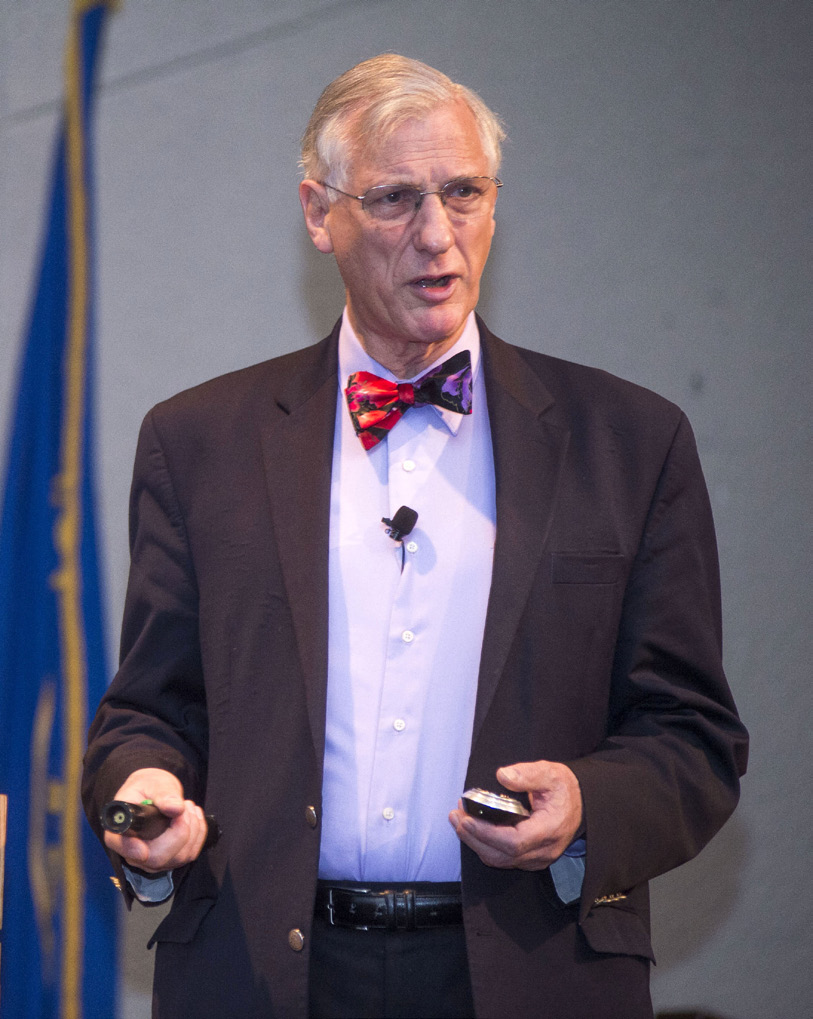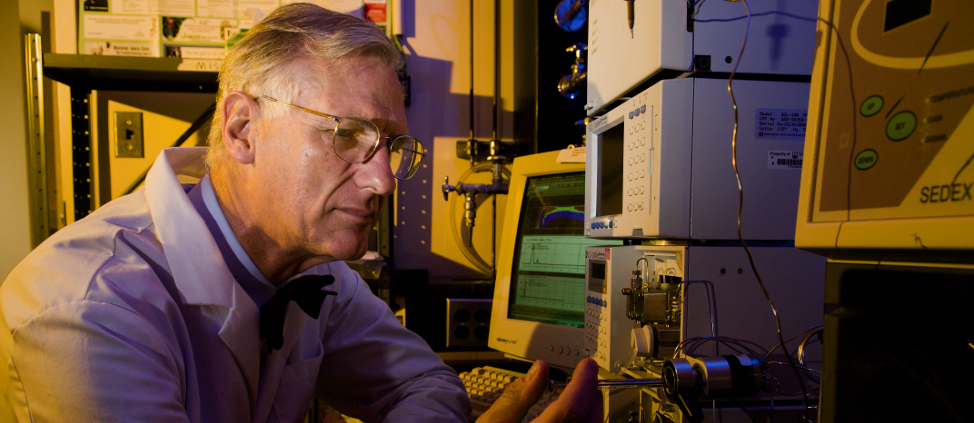What is a chemist doing in the rainforest?
by Johnny Kraft–
David Kingston shared his experiences and research about anticancer drugs found in nature to an audience of about 50 at Virginia Tech’s Fralin Hall.
The Virginia Tech Hahn Horticulture Garden presented the event, “Drug Discovery in Nature”, as part of its speaker series on Feb. 4, which was fittingly World Cancer Day.
According to Kingston, natural products have provided over a third of currently used pharmaceuticals and over 40% of cancer drugs today come from plants. He has dedicated his career research to increase those numbers in hopes of finding a cure.
“You have to kiss a lot of frogs before you find your prince,” said Kingston about his research as it can take a while to find the plants with the right products and compounds.
Anticancer drug research in plants began in the 1950s with the discovery of vinca alkaloids, which are used for chemotherapy for cancer. These alkaloids were derived from the Madagascar periwinkle plants.
Kingston became the first chemist in the United States to study paclitaxel, which is marketed as Taxol and is widely used to treat breast and ovarian cancer. Taxol was discovered and studied from 1963-1971 after being derived from the Pacific yew, a conifer native to the Pacific Northwest of North America.
The tropical rainforests of the world represent an abundant and mostly untapped source of natural products, according to Kingston. That is why he took his research to two of those rainforests: the first in Suriname, South America, and the second in Madagascar, Africa.
Suriname is a small country in northern South America with a large undisturbed forest and a unique culture. During his time in Suriname, Kingston discovered resin glycosides from the sweet potato family, which can be used to treat ovarian cancer cells.
It is a slow process with many obstacles; however, Kingston believes medicinal plants will continue to be excellent sources of new bioactive natural products and new drugs.
Madagascar is a biodiversity hotspot off the coast of Africa, where the research focused an antimalarial drugs in addition to the anticancer research. Kingston’s research in Madagascar led to the discovery of antiproliferative prenylated stilbenes from the macaranga alnifolia plant as well as antimalarial phloroglucinols discovered in the mallotus oppositifolius plant from the Madagascar forest.
“It’s fascinating and just proves that we cannot just rely on chemicals, but these plants are just as important in studying cancer,” said senior citizen, May Hoover, who attended the speech with the interest of someday taking these potential drugs.
Kingston has made a difference in the world as a chemist with his anticancer research, but has made a larger impact on the world as a humanitarian. He used his research in both Suriname and Madagascar as a way to do a lot of good for the developing countries as a whole. His research team used investment money to build new bridges, schools, agriculture sites, rehabilitation buildings and pipes to bring water from a spring to the villages where they were doing their work.
“Chemistry can really do some good,” said Kingston


Leave a Response